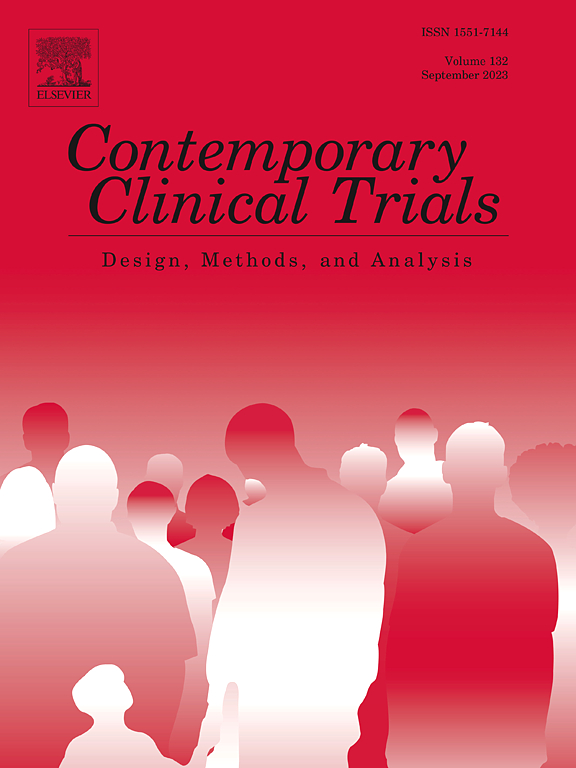Habitual Diet
How to submit an article:
- Registered users can submit any published journal article that has a unique DOI (Digital Object Identifier) name or link to Research Hub.
- For example, you can paste the full DOI link:
https://doi.org/10.1109/5.771073or just the DOI name:10.1109/5.771073into the field above and click submit. - The person who is first to submit a valid article to Research Hub will forever be credited for it, and every article submission earns you +6 Research Points.
Published research studies are articles that present the findings of original research that has undergone a peer-review process and has been made publicly available in scholarly journals, books or other media.

Effect of Incorporating 1 Avocado Per Day Versus Habitual Diet on Visceral Adiposity: A Randomized Trial
2022 Jul 19 Journal of the American Heart Association Lichtenstein AH, Kris‐Etherton PM, Petersen KS, Matthan NR, Barnes S, Vitolins MZ, et al.
Randomised Controlled Trial Visceral Fat AvocadoDespite previous suggestions, daily avocado consumption for six months did not decrease visceral adipose tissue volume in individuals with elevated waist circumference.

The design and rationale of a multi-center randomized clinical trial comparing one avocado per day to usual diet: The Habitual Diet and Avocado Trial (HAT)
2021 Nov Contemporary Clinical Trials Reboussin DM, Kris-Etherton PM, Lichtenstein AH, Li Z, Sabate J, Matthan NR, et al.
Randomised Controlled Trial Heart Disease Type 2 Diabetes Avocado Cardiometabolic Disease Cardiovascular Disease Visceral Fat Habitual Diet ObesityConsumption of one avocado per day can potentially reduce visceral adiposity and subsequently decrease the risk of diabetes and cardiovascular disease.
Research insights are moderated by the Research Hub team and offer an at-a-glance overview of interesting research findings.

2022 Journal of the American Heart Association
Despite previous suggestions, daily avocado consumption for six months did not decrease visceral adipose tissue volume in individuals with elevated waist circumference.
Randomised Controlled Trial Avocado Visceral Fat
Effect of Incorporating 1 Avocado Per Day Versus Habitual Diet on Visceral Adiposity: A Randomized Trial
Lichtenstein AH, Kris‐Etherton PM, Petersen KS, Matthan NR, Barnes S, Vitolins MZ, et al.

2021 Contemporary Clinical Trials
Consumption of one avocado per day can potentially reduce visceral adiposity and subsequently decrease the risk of diabetes and cardiovascular disease.
Randomised Controlled Trial Avocado Cardiometabolic Disease Cardiovascular Disease Heart Disease Obesity
The design and rationale of a multi-center randomized clinical trial comparing one avocado per day to usual diet: The Habitual Diet and Avocado Trial (HAT)
Reboussin DM, Kris-Etherton PM, Lichtenstein AH, Li Z, Sabate J, Matthan NR, et al.
Review Articles
Review articles summarise and critically evaluate the current state of research on a specific topic or field by synthesising multiple primary research studies.
Clinical Trials
Clinical trials are research studies that involve people and are conducted to evaluate the safety and efficacy of new treatments or interventions, such as drugs, medical devices, or behavioural therapies.

Effect of Incorporating 1 Avocado Per Day Versus Habitual Diet on Visceral Adiposity: A Randomized Trial
2022 Jul 19 Journal of the American Heart Association Lichtenstein AH, Kris‐Etherton PM, Petersen KS, Matthan NR, Barnes S, Vitolins MZ, et al.
Randomised Controlled Trial Visceral Fat AvocadoDespite previous suggestions, daily avocado consumption for six months did not decrease visceral adipose tissue volume in individuals with elevated waist circumference.

The design and rationale of a multi-center randomized clinical trial comparing one avocado per day to usual diet: The Habitual Diet and Avocado Trial (HAT)
2021 Nov Contemporary Clinical Trials Reboussin DM, Kris-Etherton PM, Lichtenstein AH, Li Z, Sabate J, Matthan NR, et al.
Randomised Controlled Trial Heart Disease Type 2 Diabetes Avocado Cardiometabolic Disease Cardiovascular Disease Visceral Fat Habitual Diet ObesityConsumption of one avocado per day can potentially reduce visceral adiposity and subsequently decrease the risk of diabetes and cardiovascular disease.
Study Protocols
Published study protocols are detailed plans that outline the objectives, methodology, statistical analyses, and organisation of a research study that have been made publicly available for others to review and use as a reference.
Presentation Slides

Randomised Controlled Trial
Despite previous suggestions, daily avocado consumption for six months did not decrease visceral adipose tissue volume in individuals with elevated waist circumference.
Lichtenstein AH, Kris‐Etherton PM, Petersen KS, Matthan NR, Barnes S, Vitolins MZ, Li Z, Sabaté J, Rajaram S, Chowdhury S, Davis KM, Galluccio J, Gilhooly CH, Legro RS, Li J, Lovato L, Perdue LH, Petty G, Rasmussen AM, Segovia‐Siapco G, Sirirat R, Su

Randomised Controlled Trial
Consumption of one avocado per day can potentially reduce visceral adiposity and subsequently decrease the risk of diabetes and cardiovascular disease.
Reboussin DM, Kris-Etherton PM, Lichtenstein AH, Li Z, Sabate J, Matthan NR, Petersen K, Rajaram S, Vitolins M, Ford N
Executive Summary
Write an executive summary in the form of a blog article on the topic of "Research into Chinese medicine treatment for Habitual Diet" summarising the research below and using language that can be easily understood by patients and avoiding medical jargon using a professional and caring tone of voice.
Write an executive summary in the form of a blog article on the topic of "Researched Chinese medicine treatments for Habitual Diet" summarising the research below in an objective and easy to understand way, and using language that can be easily understood by patients. Group the article into Chinese medicine treatments first, followed by nutrition and other treatments. Avoid using medical jargon and use a professional and caring tone of voice.
Write me a concise but easy to understand executive summary on the topic of "Chinese medicine treatments for Habitual Diet" based on the following research that I will give you. Your summary should be 2 paragraphs long in Australian English spelling and include references to the studies.
A Randomised Controlled Trial published in 2022 in the journal Journal of the American Heart Association found that Despite previous suggestions, daily avocado consumption for six months did not decrease visceral adipose tissue volume in individuals with elevated waist circumference. The HAT Trial was a multicenter, randomized, controlled study designed to observe the effects of consuming one large avocado per day for six months on free-living individuals with an increased waist circumference. The primary measure of effect was the change in visceral adipose tissue volume, which was measured through magnetic resonance imaging. Other conditions related risk factors associated with cardiometabolic disorders were surveyed as secondary and additional endpoints. In results analysis, there was no significant alteration in visceral adipose tissue volume between the Avocado Supplemented and Habitual Diet Groups. No noteworthy differences were noticed in the secondary outcomes including hepatic fat fraction and certain components of the metabolic syndrome. Of the extra outcome measures, small but significant reductions were seen in total and low-density lipoprotein cholesterol in the Avocado Supplemented compared to the Habitual Diet Group. Changes in body weight, body mass index, insulin concentration and other measured factors were very similar between both groups, showing no considerable change due to avocado consumption.
A Randomised Controlled Trial published in 2021 in the journal Contemporary Clinical Trials found that Consumption of one avocado per day can potentially reduce visceral adiposity and subsequently decrease the risk of diabetes and cardiovascular disease. The Habitual Diet and Avocado Trial was a multicenter, randomized, controlled study that evaluated the impact of daily avocado consumption over a period of six months. The experiment involved a large and diverse cohort. Participants were required to incorporate a daily avocado into their diet as a substitute for their regular dietary intake, notably those devoid of avocado consumption. Their progress was measured using magnetic resonance imaging (MRI) to ascertain the potential decrease in visceral adiposity, with individuals with increased waist circumference being the primary focus of the study. Additional measures such as hepatic lipid content, plasma lipid profiles, blood pressure and high sensitivity C-reactive protein were also part of the evaluation. The study showed promising results in terms of weight control and reduction of visceral adiposity among participants. Initial results suggest that the sense of satiety post avocado consumption may subsequently lead to an overall decrease in energy intake. Moreover, the daily consumption of avocados was observed to not only reduce visceral fat but also display potential benefits impacting cardiometabolic disease risk. The benefits of avocado consumption were notably apparent among a cohort with an increased waist circumference, thus confirming the potential health benefits of avocados in weight management and risk reduction of obesity-related diseases.
Moderation Tools
Topic
Sign In
Users not signed in are limited to viewing the 5 most recent items of content.